A Collection of 60 wildly unbalanced homebrew roles to try out in your next homebrew game!
- Synopsis
- Overview
- Changelog
- Ballerina
- Brakeman
- Explorer
- Godchild
- Guild Master
- Maître D'
- Mason
- Quartermaster
- Shaman
- Surveyor
- Theorist
- Archer
- Brewer
- Captain
- Dentist
- Falconer
- Law Dog
- Mistress
- Nun
- Prospector
- Saloon Gal
- Socialite
- Statistician
- Tracker
- Ahab
- Coroner
- Grave Digger
- Medic
- Muckraker
- Quack
- Teamster
- Cowboy
- Baker
- Banker
- Incense Burner
- Clockwork Man
- Pugilist
- Poet
- Apothecary
- Templar
- Dove Keeper
- Milliner
- Survivalist
- Telemarketer
- Landscaper
- Faker
- Actor
- Tourist
- Hippie
- Partier
- Annata
- Leper
- Soulless
- Old Coot
- Stoker
- Tumblebleed
- Contrarian
- Deserter
- Pinkerton
- One of Lies
- Night Order
This is a collection of 60 new homebrew characters for Blood on the Clocktower, in an assortment of 45 Townsfolk and 15 Outsiders. These characters very wildly in ability, use and inspiration, and the large majority of them are not play-tested, and many of them are likely not fully balanced.
Anyone has full permission to use any of these characters in their Clocktower projects or homebrew/custom scripts, as long as credit is given, and I am informed if at all possible (I understand that if you are in the year 2035 or whatever I might not be very reachable).
If you could also inform me of any balance changes you think should be made, that would be greatly appreciated as well! I can be found on Discord through the handle finnmakesttrpgstuffs if you would like to contact me there!
Thank you, and have fun reading!
Changelog
Version 1.0.0: Original version.
Version 1.0.1: Fixed Grammatical errors and shortened and clarified ability text for various characters.
Version 1.1.0: Reworked/Changed Abilities for the following characters: Guild Master, Falconer, Tracker, Baker, Telemarketer.
Version 1.1.1: Fixed Grammatical errors and shortened and clarified ability text for various characters.
Version 1.1.2: Fixed ability text and example errors, and changed the wording of the Partier, Contrarian, and Deserter abilities.
Version 1.1.3: Reworked the Night Order slightly.
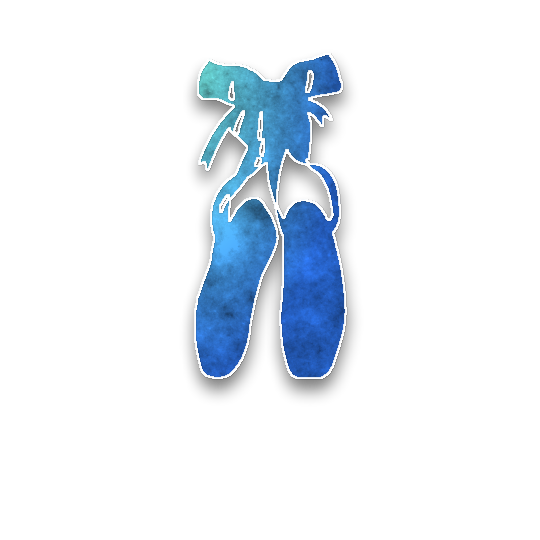
Ballerina
You start knowing how many steps you are from the nearest outsider and minion, in an arbitrary order. If there are no outsiders, that number is arbitrary.
“1, 2, 3, 5? I think I'm missing something, ma'am. What's a Sauté?”The Ballerina knows how many steps away some important people are. On their first night, the Ballerina learns 2 numbers. These 2 numbers are the number of steps from the Ballerina to the closest Outsider and Minion. You may show these numbers in either order. If there are no outsiders, show an arbitrary number instead of that number.
Examples
Josh, the Ballerina, is 2 steps away from the closest outsider, Mary the Butler, and 3 steps away from the closest minion, Kim the Pit Hag. Josh might learn 2 and 3 or 3 and 2.
Townsfolk

Brakeman
You start knowing an in-play townsfolk. The first time they would die due to an ability, you die instead.
“Is that... oh my god, stop the train! That's my best friend right there!”The Brakeman is able to protect the player they know best. On their first night, show the Brakeman an in- play townsfolk and mark them with the Protected token. The first time that the Protected player would die due to the ability of any character, they don't, and the Brakeman is marked with the No Ability token. This protection does not protect from executions that are not due to a character's ability.
Examples
Koby, the Brakeman, learns that the Dreamer is in-play. On the third night, Hayden, the Imp, attacks Roger, the Dreamer; nothing happens and Koby is marked with the No Ability token.
Koby, the Brakeman, learns that the Fortune Teller is in-play. On the second day, Carey, the Fortune Teller, gets the majority of votes and is executed; they die.
Townsfolk

Explorer
You start knowing how many evil players are within 2 steps of you in either direction.
“Down that trail is the Twisted Woods, that one's the Dark Portal, and that one's the Teddy Bear Palace... they will eat you there, it's quite a deceiving name.”The Explorer knows the lay of the land around those who are trustworthy. On their first night, show the Explorer a number equal to the number of evil players within 2 steps of them.
Examples
Janu, the Explorer, is next to Gino, the Fang Gu, and 2 steps away from Forrest, the Poisoner. Janu learns a 2.
Janu, the Explorer, is 2 steps away from Harold, the Recluse, and no evil players. Janu learns a 1.
Townsfolk
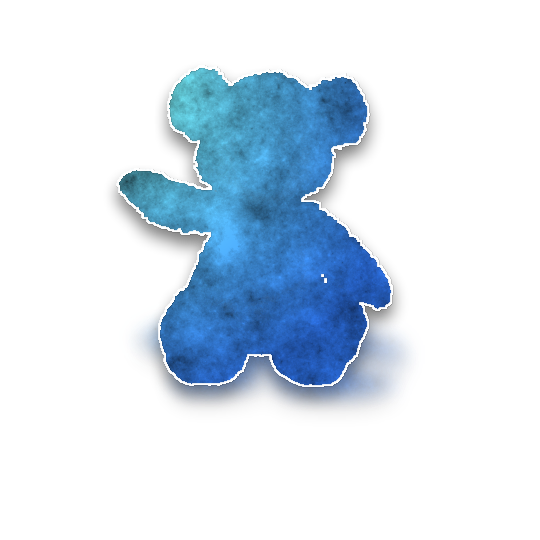
Godchild
You start knowing 1 good player; They cannot become evil. If they die during the night, you die.
“Granny, I love you, and I know you love me. Be safe out there, you know there's people that want what we have.”The Godchild knows someone who is good and wouldn't turn on them, but they are dependent on them. On their first night, show the Godchild a good player and mark them as Innocent. If that player would become evil for any reason, they do not. If that player dies for any reason during the night phase, mark the Godchild as Dead.
Examples
During Night 1, Jared, the Godchild, sees Tara, the Empath; she is marked as Innocent.
During Night 2, Tara says the Mezepheles' secret word; the following night, she does not turn evil.
During Night 3, Willard, the Po, kills Tara; Jared dies as well.
Townsfolk

Guild Master
You start knowing 2 Townsfolk, one has multiple in-play and the other is not-in-play. The Demon knows what characters you learn. [There is multiple of a Townsfolk in-play]
“Well, there are hundreds of specialized guilds in just Ravenswood Bluff, but I'm quite impartial to the Acrobat's Association. Would you like to give it a try?”The Guild Master duplicates a townsfolk, and might know which. During setup, put multiple tokens of any townsfolk character (including the Guild Master) into the bag. During the first night, show the Guild Master 2 characters, one of which is the character with multiple tokens, and the other of which is not-in-play.
Examples
During setup, 3 Empath tokens are put into the bag. On the first night, Jonas, the Guild Master, learns Noble, which is not-in-play, and Empath.
Later that night, Wayne the Demon is shown the Guild Master token, then the Noble and Empath tokens.
Townsfolk

Maître D'
You start knowing one character of each character type, exactly 2 are in-play.
“Sir, I don't see you on our guest list. No, you have to make a reservation first here. I understand you are the wife of the recently deceased Mr. Dubont, but nobody is exempt from the list.”The Maître D' knows that only so many people can be on the guest list. On their first night, show the Maître D' one character of each character type, with 2 and only 2 being in-play characters.
Examples
During Night 1, Mark, the Maître D', is shown the Librarian, Ogre, Marionette, and Lord of Typhon tokens. The Ogre and Marionette are in-play, the Librarian and Lord of Typhon are not.
Townsfolk

Mason
You start knowing all other Masons that are in play. Each night*, a Mason may choose a player: all Masons learn their alignment. A chosen evil player learns you are a Mason. If an evil player guesses all of the Masons (once), your team loses [+0 to +2 Masons].
“Ordo Ab Chao, So mote it be.”The Masons know each other, but cannot let the evils know them. On the first night, wake all Masons together. Every other night, each Mason is woken individually to choose a player or choose not to. If only one Mason selected a player, all Masons are woken to learn their alignment. If an evil player was chosen, wake them, point to the Mason that chose them, and show them the Mason token. If the first time an evil player publicly guesses who all the Masons are they are correct, and at least one Mason is alive, evil wins.
Examples
During Night 1, Grant and Hope, the Masons, wake together and look at each other. The next night, Grant chooses Darrah, the Heretic, and Hope does not chooses a player; Grant and Hope then wake together to learn that Darrah is good.
During Night 2, Ben, the only Mason, chooses Juno, the Xaan; Ben learns Juno is evil. Then, Juno is woken, and the storyteller shows them the Mason token and points at Ben. The next day, Juno claims evil and says that Ben is the only Mason. Evil wins.
During Night 3, Emily, Mazie, and Elijah, the Masons, all pick Vada, the Empath; nothing happens.
Townsfolk

Quartermaster
You start knowing how many in-play characters have abilities that might effect setup.
“We're gonna run out of bunks in the Outsider hall sooner rather than later, you know...”The Quartermaster knows how many people have changed the arranged order. On their first night, show the Quartermaster a number equal to the number of characters with abilities that effect or may effect setup that are in-play.
Examples
On the first night, Noah, the Quartermaster, learns a 3 because the Godfather, Balloonist, and Hermit are all in-play.
All characters with abilities that effect setup have an orange leaf on their token.
Townsfolk

Shaman
You start knowing every player in the game in a certain order. Each day, visit the storyteller to guess why: learn how accurate you are. If correct, learn that 1 of 2 players is the Demon the following night.
“The winds guide the way, friend. If you're looking for something to take you where you seek, you will need to prove your worthiness to me.”The Shaman almost knows who the Demon is, but must become enlightened first. On their first night, show the Shaman all players in the game in an order, with a predetermined reason for the order. Each day, the Shaman may visit the storyteller to guess what this reason is, learning how accurate they are, and 'bingo' is they exactly or basically exactly correct. If they got a bingo, they learn two players the following night, one of which is the Demon.
Examples
The Shaman, 1, learns the following order: 7, 1, 3, 4, 8, 6, 2, 5. They are in this order because it alternates between characters that do not and do wake on the first night.
On the first day, the Shaman guesses if it has to do with alignment: they learn cold.
On the second day, the Shaman guesses if it has to do with night abilities: they learn warm.
On the third day, the Shaman guesses if every other player woke during the first night: they learn bingo.
The following night, the Shaman learns 6, the Bounty Hunter, and 3, the Imp.
Townsfolk

Surveyor
You start knowing how many evil players neighbor 2 Townsfolk.
“Given the census results, the endangered deer population has gone up by 18%, populations of carnivores have gone down by 15%, insect populations have remained stable, and the population of ne'er-do-wells has risen by 200%.”The Surveyor knows what is close to them very well. On their first night, show the Guide a number equal to the number of evil players that neighbor 2 townsfolk.
Examples
On their first night, Fabio, the Surveyor, learns a 1. This is because Hunter, the Imp, neighbors Ivy and Pablo, the Village Idiots.
Townsfolk
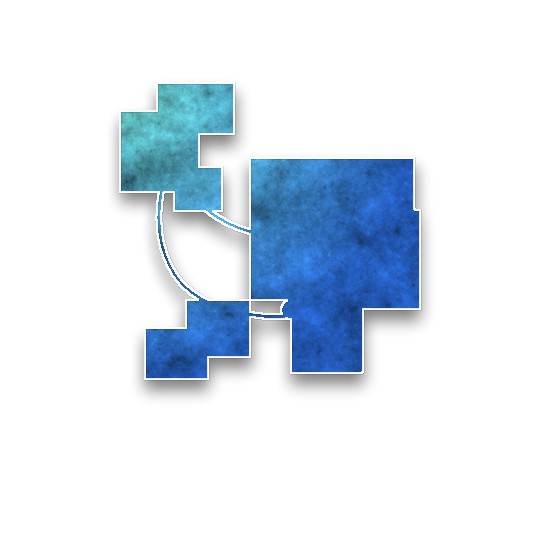
Theorist
You start knowing which Demons are in play.. If at least one of your starting neighbors is evil, this information is false.
“I got it! The reason for the drought lately isn't a shift in the natural weather patterns, it's the bull is the maze that's casting a spell! How didn't anyone see this before?”The Theorist knows the Demon, if their sources are reliable. On their first night, show the Theorist a Demon. If both of their neighbors are good, show the in-play demon, but if one or both are evil, show an out-of-play Demon.
Examples
Grant, the Theorist, neighbors Hope, the Professor, and Logan, the Steward. Grant learns Shabaloth, the in-play Demon.
Teddy, the Theorist, neighbors Boyd, the Princess, and Zaid, the Imp. Teddy learns Fang Gu, an out-of-play Demon.
Townsfolk

Archer
Each night, you learn how many alive evil players are between yourself and the Demon, alternating direction each night.
“You're the target, and I never miss -Smokebreak”The Archer is a sharpshot that sees the evils. On their first night, show the Archer a number equal to the number of alive evil players between themself and the Demon either clockwise or counter clockwise. Every other night, show the Archer the number of alive evil players between themself and the Demon is the opposite direction as last night. The Storyteller chooses which direction the Archer learns about Night 1.
Examples
On Night 1, Dave, the Archer, is neighboring the Demon clockwise and all 3 minions are between him and the Demon counterclockwise. This night, he could learn either 0 or 3. On Night 2, given no minions die, Dave would learn the number he didn't learn last night.
Townsfolk
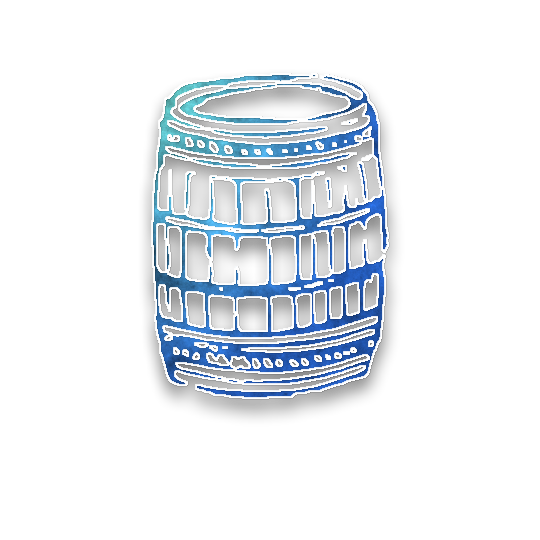
Brewer
Each night, choose a player (not yourself): learn another player, 1 and only 1 is sober, healthy, and good (if possible).
“All right bud, I'm cutting you off. If you want to drink more you'll have to buy a bottle off of the shelf and take it home at a premium. Not that I'd mind you doing that, anyhow.”The Brewer knows who has and hasn't has some of their product. Each night, the Brewer chooses a player (not themself); the storyteller then points to a player. If possible, only one player should be sober, healthy, and good.
Examples
On Night 1, Taylor, the Brewer, chooses Grant, the sober and healthy Empath. The storyteller shows Taylor the Pit Hag, Hope.
On Night 2, Taylor chooses Richard, the drunk King. The storyteller shows Taylor the sober and healthy Washerwoman, Emma.
On Night 5, Taylor chooses Drew, the Imp. There are no sober, healthy, and good players, so Taylor is shown Hope, the Pit Hag instead.
The storyteller cannot show the Brewer themself. The Drunk registers as drunk to the Brewer.
Townsfolk
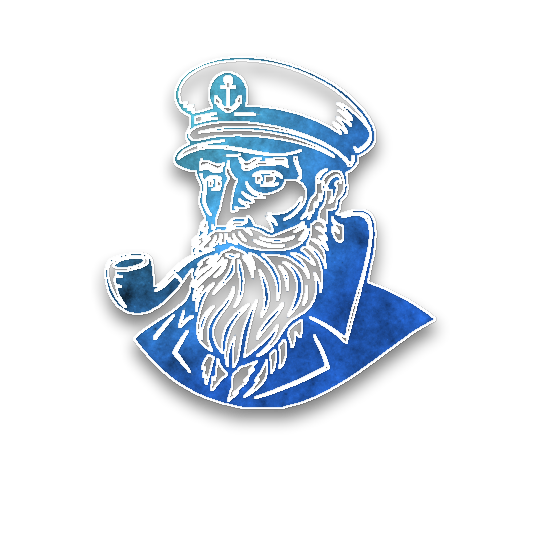
Captain
Each night, choose a player (not a neighbor of your last choice): learn if they are closer to the demon than your last choice. If equal, this info is arbitrary; if they are evil, this info is false.
“All aboard to Port Grindolf, three weeks on the open water, on the safest ship in the country. Would you all be fine with a... small detour during our trip?”The Captain can navigate towards the Demon, if they can find the way. On the first night, the Captain chooses a player; nothing happens yet. Every other night, the Captain chooses another player 2 or more steps away from their previous choice; give them a yes signal if they are closer to the demon, a no signal if they are farther, or either is they are equidistant to the Demon than the last choice. If the player they chose is evil, give them the opposite signal.
Examples
On Night 1, Randolf, the Captain, chooses Grant, who is 4 steps away from the Demon.
On Night 2, Randolf chooses Trent, who is good and 2 steps away from the Demon. Randolf gets a 'yes' signal.
On Night 3, Randolf chooses Mila, who is evil and 5 steps away from the Demon. Because Mila is evil, Randolf falsely gets a yes signal.
Townsfolk

Dentist
Each night, choose a player: learn if they have 2 or more reminder tokens on them.
“You're gonna need at least 3 fillings and a root canal on those damaged molars, honey.”The Dentist knows who has a lot going on. Each night, the Dentist chooses a player; if they have 2 or more reminder tokens on them, give a yes signal. Otherwise, give a no signal.
Examples
On Night 1, Tom, the Dentist, chooses Derek, who has 1 reminder token on them; they receive a no signal.
On Night 2, Tom chooses Reece, who has 3 reminder tokens on them; they receive a yes signal.
Townsfolk

Falconer
Each night, choose a player: if they are evil, you lose this ability.
“Caw, caw, caw.... CAW!”The Falconer knows who is trustworthy, and one person who's not. Each night, the Falconer chooses a player: if the player they chose is evil, they lose their ability, and you stop waking the Falconer.
Examples
On Night 1, Franny, the Falconer, chooses Tom, the Investigator; nothing happens.
On Night 2, Franny chooses Malcolm, the Pukka; Frannty is marked with the 'No Ability' reminder.
On Night 3, Franny is not woken.
Optional Rule: The Falconer may wake up when poisoned even if they don't have their ability, and vice versa.
Townsfolk

Law Dog
Each night, learn an in-play evil character. If at least one of your alive neighbors is evil, this information is false.
“Howdy, pardner. I'm looking for one 'Black Suit Bandit', you heard of 'em? A new bank robbing criminal? Well, I guess I have another job, thank you for the tipoff, and I hope your mourning goes well, midnight adorned stranger.”The Law Dog knows the evils, if they can trust their neighbors. Every night, the Law Dog is shown an evil character. If both of their alive neighbors are good, it's in-play, but if one or both of their alive neighbors are evil, it is out-of-play instead.
Examples
On Night 1, Tom, the Law Dog, had two good starting neighbors; they are shown the Scarlet Woman, which is in-play.
On Night 2, one of Tom's alive neighbors is now Terry, the Scarlet Woman; they are shown the Kazali, which is not-in-play.
Townsfolk

Mistress
Each night, choose a player: either you or they are drunk until dusk. You learn their character and alignment.
“Hey, hot stuff~ You look like you're wanting a good time, and I can deliver, I just need your name~”The Mistress knows everything, at the cost of stability. Each night, the Mistress chooses a player, and either the Mistress or the chosen player becomes Drunk until dusk; then, the Mistress is shown the chosen player's character and alignment, which as usual, is instead arbitrary if the Mistress is drunk.
Examples
On Night 1, Jen, the Mistress, chooses Trevor the Empath; Trevor becomes drunk until dusk, and Jen is shown that Trevor is the Empath and given a good signal. Later, Trevor is given a 1, which is incorrect.
On Night 2, Jen chooses Grant the Imp; Jen becomes drunk until dusk, and Jen is shown that Grant is the Pixie and given a good signal.
If the Mistress dies, their Drunk token is removed.
Townsfolk

Nun
Each night, choose a new evil character: if in-play, they lose their ability until dusk and learn this. The first in-play minion you choose does not regain their ability.
“In the name of the Father, the Son, and the Holy Spirit, amen... you're supposed to say it as well.”The Nun cleanses the evil in town, albeit impermanently. Each night, the Nun chooses an evil character they haven't chosen before; if it is in-play, they lose their ability until dusk, and are woken to learn this by being shown the Nun token. If it is the first in-play minion chosen, they instead lose their ability permanently and are marked as 'Cleansed'.
Examples
On Night 1, Amelie the Nun chooses the Pit Hag, which is not-in-play; nothing happens.
On Night 2, Amelie chooses the Goblin; Trent the Goblin is marked ad 'Cleansed' and loses their ability and is woken to learn this.
On Night 3, Amelie chooses the Fang Gu; Joanna the Fang Gu has no ability until dusk and is woken to learn this.
If the Nun is drunk, poisoned, or dead, any chosen evil characters still have their ability.
Townsfolk
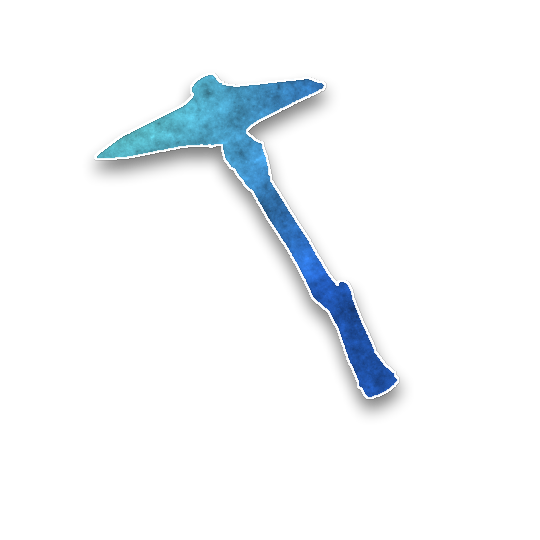
Prospector
Each night, choose a new player (not yourself) and a one word topic you want a statement about. If the player is a Townsfolk, it is true: if not, it is false, and you might die.
“Prospector Jenkins, very trustworthy businessman! Dynamite not factored!”The Prospector digs for the truth, possibly at the cost of their own life. Each night, the Prospector chooses a new player (not themself) and one word of a statement they want to know something about, like 'Demon', 'Execution', or 'Poison'. If they chose a Townsfolk, this statement is true, otherwise, it is false. If the Prospector just learned a false statement, they also might be marked as Dead.
Examples
On Night 1, Pete, the Prospector, chooses Jesse the Librarian and the word 'Demon'. Pete learns that the Demon is not next to a Minion, which is correct.
On Night 2, Pete chooses Bo the Organ Grinder and the word 'Drunk'. Pete learns that they are 2 steps away from a drunk player, which is false, and the storyteller also decides to mark Pete as Dead.
If it's the first night, the Prospector cannot die.
Townsfolk
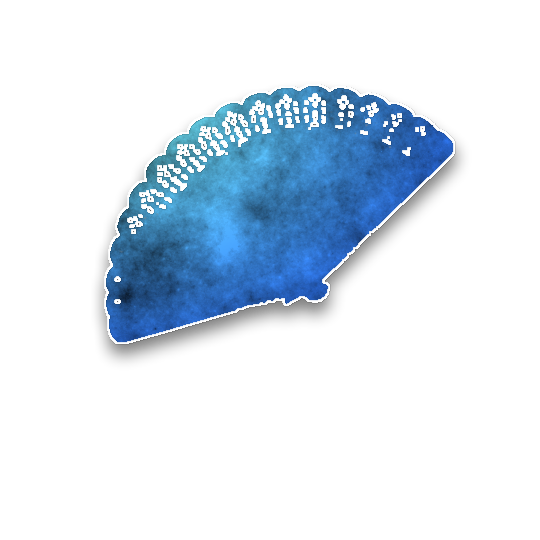
Saloon Gal
Each night, choose a player: if drunk and/or poisoned they learn true info until dusk. Otherwise they learn false info until dusk.
“Oh, have you not heard?”The Saloon Gal tells others something they don't know, whether it's true or not. Each night, the Saloon Gal chooses a player, and they are marked with the Rumored token until dusk. If that player learns information and is poisoned or drunk, they learn true information. Otherwise, they learn false information.
Examples
On Night 1, Rose, the Saloon Gal, chooses Gary, the sober and healthy Empath; Gary is marked as Rumored and must learn false information tonight.
On Night 2, Rose chooses Trent, the drunk Oracle; Trent is marked as Rumored and must learn true information tonight.
The Drunk registers as drunk to the Saloon Gal.
Townsfolk

Socialite
Each night, choose a player: Learn a player they have something in common with. If the Demon kills you, learn what the most recent connection was.
“I heard that you slept at the Governor's house two nights ago. I don't think this, honey, I know.”The Socialite knows who is close to who. Each night, the Socialite chooses a player, and learns a player they have something in common with, be it because of alignment, character type, ability, reminder tokens, or something else. If the Demon kills the Socialite, the Socialite is told what connection the most recent pair of players had (ex: they have the same character type, or their character both woke up last night).
Examples
On Night 1, Victoria, the Socialite, chooses Nolan, the Librarian; Victoria learns Owen, the Noble, because they both are 'you start knowing' characters.
On Night 2, Victoria chooses Bryan, the poisoned Monk; Victoria learns Jeremy, the drunk Sailor, because they are both drunk or poisoned.
On Night 3, Victoria is attacked by the Demon. Victoria is woken to learn that Bryan and Jeremy were both drunk or poisoned.
Townsfolk

Statistician
Each night, choose a new character that learns a number: choose players or characters if applicable, learn 2 numbers, one of which is what that character would learn.
“Eureka! Possibly!”The Statistician can figure any number out... almost. Each night, the Statistician chooses a character that learns a number that they haven't chosen before. The statistician then learns two numbers, one of which is the number that character would learn, and the other is arbitrary. The numbers can be shown in either order.
Examples
On Night 1, Jen, the Statistician, chooses the Chef; there are 2 pairs of evil players. Jen is shown 1 and 2.
On Night 2, Jen chooses the Mathematician; there are 3 players whose abilities worked abnormally since dawn. Jen is shown 3 and 4.
The Statistician cannot choose a character that doesn't wake on Night 1 (ex: the Oracle) on Night 1.
Townsfolk

Tracker
Each night, choose a player: learn the player who saw or chose them last tonight. If you would learn nothing, you learn false information instead.
“These tracks, they belong to the Siamese Fireback, and only one man is town is wealthy enough to own one... ”The Tracker sees who is visiting who, but can't see nothing. Each night, the Tracker chooses a player, and they are shown the player that most recently saw or chose them tonight. If they would learn nothing or the Demon player, instead they learn false information.
Examples
On Night 1, Rudy, the Tracker chooses Jace; Jace was only seen by Mazie the Steward tonight, so Rudy learns Mazie.
On Night 2, Rudy chooses Jace again; Jace was not seen or chosen by anyone tonight, so Rudy learns Wayne, the Recluse.
Townsfolk
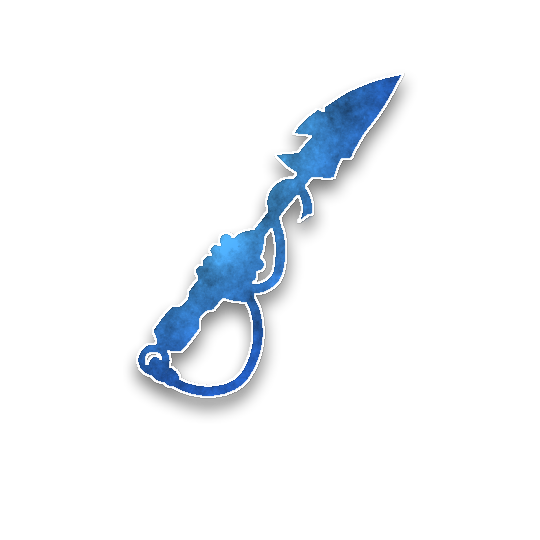
Ahab
Each night*, learn if the most recent executee is closer clockwise or counterclockwise to the Demon. If equal, the information is arbitrary. [+The Leviathan]
“Till my dying day your blood is all I shall thirst for!”Ahab slowly tracks his white whale. If the Ahab is in play, the in-play Demon must be the Leviathan. Each night but the first, if a player was executed yesterday, show Ahab the direction that player is closer to the Demon from. If the Demon is an equal number of steps from the Demon in either direction, Ahab might be shown either direction (clockwise or counterclockwise).
Examples
During Day 1, Tom was executed. On Night 2, because Tom was 3 steps away from the Demon clockwise and 6 steps away from the Demon counterclockwise, Jason, the Ahab, learns 'clockwise'.
During Day 2, no one was executed. On Night 3, Jason is not woken.
Townsfolk

Coroner
Each night*, learn how many characters abilities caused deaths tonight.
“Blood and fingerprints look uniform on the surface, but they contain a secret few can unlock.”The Coroner knows how many sources of death there are. Whenever a character's ability, including their own, causes someone to die during the night, mark them with a 'Killer' token. Each night except the first, wake the Coroner and show them a number equal to the number of characters marked with a Killer token, then remove all Killer tokens.
Examples
During Night 2, Logan the Gossip, Frannie the Godfather, and Hugh the Imp have all caused deaths and been marked with 'Killer' tokens. Later, Drew the Coroner is woken, shown a 3, and after he is put back to rest all Killer tokens are removed.
Townsfolk
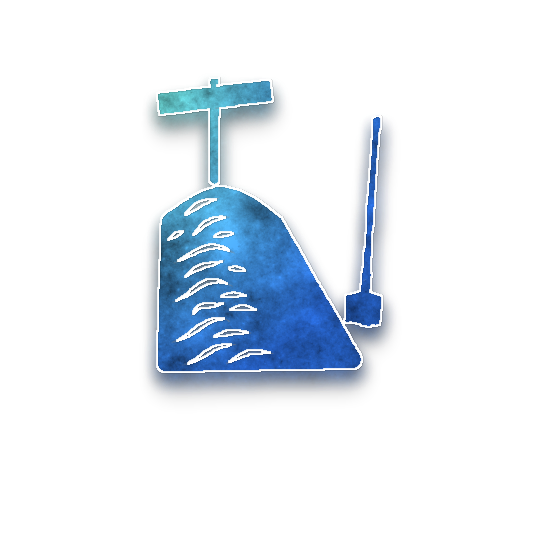
Grave Digger
Each night*, choose a player: if they died tonight, you learn their character. If not, you learn false information.
“He wuz walkin' 'round all fancy last night, and then I found him by the shore with no 'ead this morn. His valuables? ...Must'a been stolen by the killer, it must'a.”The Grave Digger can identify corpses... and only corpses. Each night except the first, wake the Grave Digger to chooses a player; if they died tonight, show them the character of that player, and if they didn't show them a character that they aren't.
Examples
On Night 2, Jonas, the Grave Digger, chooses Roy, the Empath, who was attacked and killed by the Demon tonight; Jonas is shown the Empath token.
On Night 3, Jonas chooses Grant, the Poisoner, who was not killed tonight; Jonas is shown the Fortune Teller token.
Townsfolk

Medic
Each night*, choose a dead player: learn if they were drunk, poisoned, or "mad" at their time of death.
“Ze hurting is not as rewarding as ze healing.”The Medic is great at diagnosing... the dead. Each night except the first, the Medic chooses a player, and learns if they were drunk, poisoned, or made "mad' due to an ability at their time of death.
Examples
On Night 2, Thomas the Medic chooses Harold, the dead Clockmaker, who was sober, healthy, and sane at their time of death; Thomas is given a 'no' signal.
On Night 3, Thomas chooses Brad, the dead Virgin, who was poisoned at their time of death; Thomas is given a 'yes' signal.
If you cannot remember information for this, consider creating new reminder tokens.
Townsfolk

Muckraker
Each night*, learn a fact that applies to at least one alive player and choose an alive player: if it does not apply to them, you die.
“No, no literally. Please stop asking.”The Muckraker tries to uncover evil's secrets. Each night but the first, the storyteller gives the Muckraker a fact that applies to at least one alive player, then the Muckraker chooses an alive player; if this fact does not apply to them, mark the Muckraker as 'Dead'.
Examples
On Night 2, Victoria, the Muckraker, learns 'wakes tonight'; she chooses Frank, the Chambermaid. Nothing happens.
On Night 3, Victoria learns 'is drunk or poisoned'; she chooses Grace, the sober and healthy Imp. Victoria dies.
Townsfolk

Quack
Each night*, choose a new player (not yourself): they are either drunk until dusk but cannot die until dusk, or are sober and healthy until dusk.
“My entire 2 years of high school have prepared me for this! I just have to remember where the new heart is...”The Quack gives unreliable medical care. Each night except the first, the Quack chooses a player they have not chosen before, then the storyteller marks them with the Drugged or Healthy token. If they are marked as 'Drugged', they are but cannot die until dusk, and if they are marked as 'Healthy', they are sober and healthy until dusk.
Examples
On Night 2, Mark, the Quack, chooses Nolan the Empath; they are marked as Drugged. The next day, Nolan is executed; they do not die.
On Night 3, Mark chooses Trent the Oracle; they are marked as Healthy. Later, Trent learns a correct 1.
Townsfolk
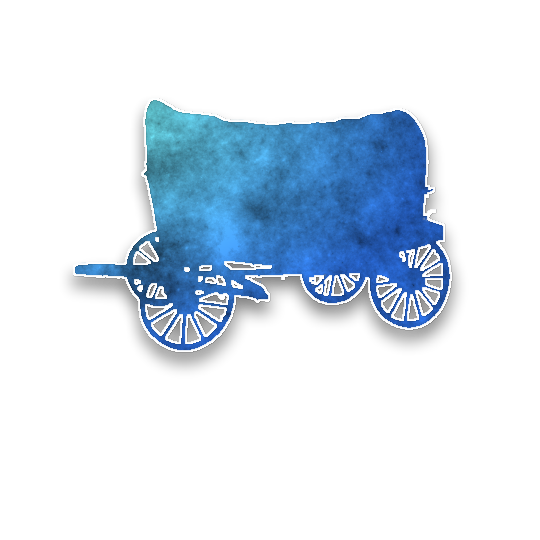
Teamster
Each night*, learn a player of different character type to the player that was executed today. [+0 or +1 Outsiders]
“Are you going to skin that smokewagon or whistle Dixie?”The Teamster knows who gets around. During setup, an outsider might be added into the bag. Each night but the first, if a player was executed today. show the Teamster of a player with a different character type.
Examples
On Day 1, Fred the Empath was executed. The following night, Jane the Teamster learns Daphne the Marionette.
On Day 2, nobody is executed. The following night, Jane is not woken.
Townsfolk
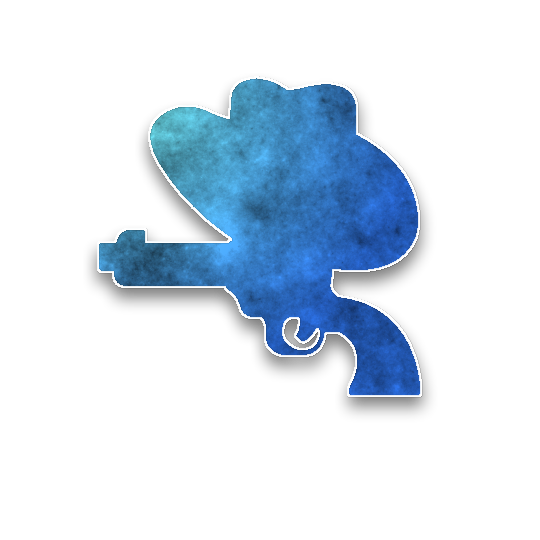
Cowboy
Each day, publicly choose a player: if you or they die tonight, you learn their character.
“Yeehaw!”The Cowboy duels to learn. Each day, if the Cowboy publicly chose a player, mark them with the 'Dueled' token. The following night, if the Cowboy and/or the Dueled player dies, show the Cowboy the Dueled players' character token.
Examples
During Day 1, Marshall the Cowboy publicly chooses Erin the Tea Lady. The Following night, Erin is killed by the Demon. Marshall is woken, and the storyteller shows the Tea Lady token and points to Erin.
During Day 2, Marshall publicly chooses Ray the Po. The following night, neither Marshall or Ray died. Marshall is not woken.
Townsfolk

Baker
Once per game, at night, you may choose 3 players (not yourself): you learn how many character types are among those players.
“"Hey joey, got your loaf set aside right here. Who's the friend? I don't like the look of em. You watch out there."”The Baker knows about their clientele. Each night, the Baker is woken and asked if they will use their ability; if they do, they when choose 3 players, and are shown a number equal to the number of character types between the players chosen. After that, mark the Baker as 'No Ability' and and remove their night token from the night sheet.
Examples
During the first three nights, the Baker chooses not to use their ability.
On Night 3, Fiore, the Baker, is woken and asked if they would like to use their ability; they indicate yes. Fiore then chooses Grant the Washerwoman, Jason the Saint, and Laura the Mayor; Fiore learns a 2.
Attribution
Credit to Fallen (or fallen__hero) for the flavor text, thank you!
Townsfolk

Banker
Once per game, at night, learn X out-of-play characters, where X is the night.
“We make the money the old-fashioned way—we take it.”The Banker's ability gains interest over time. Each night, wake the Banker and ask them if they would like to use their ability; if they do, show the Banker a number of out-of-play characters equal to the night number. Afterwards, mark the Banker with the 'No Ability' token and remove their night token from the night sheet.
Examples
During the first four nights, the Banker chooses to not use their ability.
On Night 5, Joshua the Banker chooses to use their ability, and is shown the Empath, Fool, Drunk, Godfather, and Lleech, all of which are not-in-play.
Townsfolk
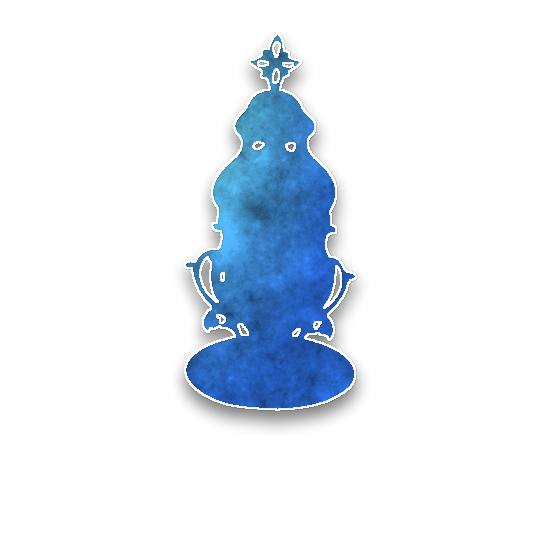
Incense Burner
Once per game, at night, choose a Demon and Minion: if one or more players are these characters, they become an out-of-play character of the same type.
“O Lord, open my lips, give me strength.”The Incense Burner makes sure one Demon and Minion isn't in play. Each night, wake the Incense Burner and ask them if they would like to use their ability; if they do, they then choose one Demon and Minion. If those characters in-play, change the the characters of those players to an out-of-play character of the same character type, and wake them to show them their new characters.
Examples
During the first two nights, the Incense Burner chooses to not use their ability.
On Night 3, Finn the Incense Burner uses their ability and chooses the Pit Hag and Fang Gu; Mark the Pit Hag becomes a Cerenovus and learns this.
Townsfolk

Clockwork Man
Once per game, at night*, learn the character types of your farthest alive neighbors. You know which players you learn about. The Demon registers as a Townsfolk or Outsider to you.
“Do you think we were all created for a purpose? I'd like to think so.”The Clockwork Man learns as much as it can about those it cannot reach. Each night except the first, wake the Clockwork Man and ask them if they would like to use their ability; if they do, show the Clockwork Man the character types of two alive players that are the farthest away from them, and which players they learned about if there was a tie. Afterwards, mark the Clockwork Man with the 'No Ability' token and remove their night token from the night sheet.
Examples
On Night 2, Sean the Clockwork Man does not use his ability. On Night 3, Sean decides to use his ability, and learns the character types of Grant the Undertaker and Frank the Spy; Sean is shown Townsfolk and Outsider.
On Night 2, Cameron the Clockwork Man decides to use his ability, and learns the character types of Ian the Shabaloth and either Juno the Librarian or Trent the Noble; Cameron is shown Ian and Juno then Demon and Townsfolk.
Townsfolk

Pugilist
Twice per game, during the day, publicly choose a player: if they are an outsider or minion, they die the next night. You cannot use this ability twice on the same day.
“Float like a butterfly, sting like a bee.”The Pugilist can give some players the old 1-2. Twice per game, during the day, the Pugilist may publicly choose a player; if they are a Minion or Outsider, mark them as Dead; they die the following night. The Pugilist can only use their ability once per day. The first time the Pugilist uses their ability, mark them with the 'Once' token, and the second time they use their ability, remove the Once token and mark them with the 'No Ability' token; the Pugilist now cannot use their ability.
Examples
On Day 1, Mark the Pugilist publicly chooses Drew the Empath; Mark is marked with the 'Once' token and nothing else happens.
On Day 2, Mark publicly chooses Sandra the Mutant; Mark is marked with the 'No Ability' token and Sandra is marked with the 'Dead' token and dies the next night.
Townsfolk

Poet
On your first day, publicly guess one character of each character type. The next night, learn how many are in play.
“It was the best of times, it was the BLURST OF TIMES?”The Poet sees what rhymes with reality. On their first day, the Poet publicly chooses one character of each character type (That being Townsfolk, Outsider, Minion, and Demon); the following night, show the Poet a number equal to the number of characters guessed that are in-play.
Examples
On Day 1, Brittany the Poet guesses the Savant, Barber, Godfather, and Yaggababble; the Savant, Barber, and Yaggababble are in-play. The next night, Britanny is given a 3.
If a player is turned into a Poet, they can guess the day after they were turned.
Townsfolk
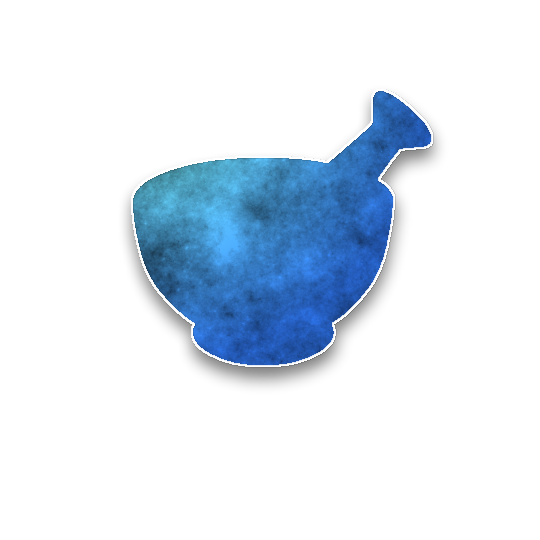
Apothecary
If you nominate and execute an Outsider, they learn you are the Apothecary and they become drunk. [Minimum 1 Outsider]
“I will cure the filth that plagues these streets, one day at a time.”The Apothecary cures outsiders. If the Apothecary successfully nominates and executes an outsider, the outsider is marked with a 'Drunk' token (this happens before the execution occurs). The next night, that outsider is woken and shown the Apothecary token and pointed to the Apothecary.
Examples
On Day 1, Mary the Apothecary nominates and executes Nolan the Butler; Nolan is marked as Drunk, and the following night Nolan is shown the Apothecary token and pointed to Mary.
On Day 2, Mary nominated and executes Ben the Saint; Ben is marked as drunk before the execution, so good does not lose. and the following night Nolan is shown the Apothecary token and pointed to Mary.
Townsfolk

Templar
If the Demon kills you, learn all in-play Minions. If none are dead, one dies.
“Deus Vult!”The Templar learns all minions when attacked by the Demon, and kills one if necessary. If the Templar is attacked and killed by the Demon, wake the Templar and show them all in-play minion tokens; if all are alive, mark one as 'Dead'.
Examples
On Night 3, Drew the Templar is attacked by the Demon. Drew is then woken and shown the Cerenovus, Boomdandy, and Marionette tokens; since all are alive, Grace the Cerenovus is marked as 'Dead'.
On Night 5, Geoff the Templar is attacked by the Godfather. Geoff is not woken.
Townsfolk

Dove Keeper
The first time a sober and healthy good player is executed (not yourself), they do not die.
“Make sure to keep your plumage neat, my dear. Our big day is today, after all.”The Dove Keeper saves that who is the most worthy. The first time a sober, healthy, and good player would be executed, they do not die and the Dove Keeper is marked with the 'No Ability' token. The Dove Keeper does not learn this.
Examples
On Day 1, Tom the drunk Noble is executed; they die.
On Day 2, Grant the sober and healthy Alchemist is executed; they do not die and Anna the Dove Keeper is marked as having no ability.
On Day 3, Noah the sober and healthy Dreamer is executed; they die.
Townsfolk

Milliner
The first time you and your neighbors (if good) would become drunk, poisoned, "mad", or die at night, nothing happens.
“The new Bucket Hat (tm) now made with an actual bucket!”The Milliner protects them and their neighbors... once. At the beginning of the game, mark the Milliner and their neighbors (if good) with 'Protected' tokens. The first time any player with a Protected token would become drunk, poisoned, made "mad" by an ability, or die during the night, nothing happens and their Protected token is removed.
Examples
On Night 1, Grant the Milliner and his neighbors Tom the Empath and Dreya the Undertaker are marked as Protected. Later that night, Tom is chosen by the Poisoner; Tom's Protected token is removed.
On Night 2, Grant is chosen by the Cerenovus; Grant's Protected token is removed and nothing else happens.
On Night 3, Grant is chosen and killed by the Demon; Grant dies and Dreya's Protected token is removed.
Protected tokens only work if the Milliner is sober, healthy and alive.
Townsfolk
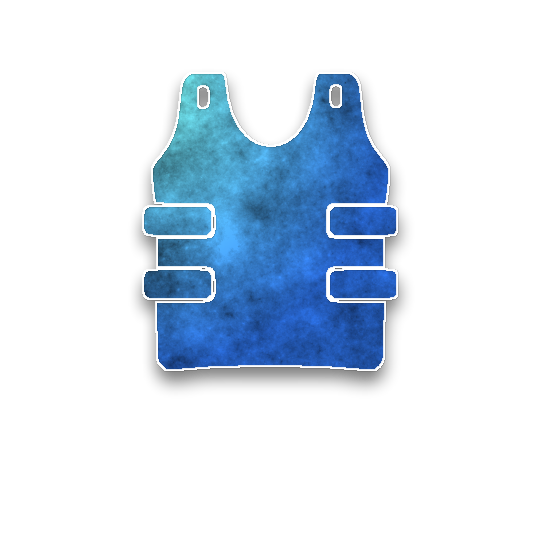
Survivalist
The first time you would die during the night, you don't and you learn what character would've killed you.
“Bullet proof vests are so in right now, don't you know? All the models are wearing them.”The Survivalist is ready to take one bullet. The first time the Survivalist would die during the night, wake the Survivalist and show them what character would've killed them, then mark them with the 'No Ability' reminder.
Examples
On Night 3, Chris the Survivalist is attacked by Wendy the Fang Gu; Chris is woken and shown the Fang Gu token, then marked as 'No Ability'.
On Night 4, Chris is attacked by Wendy again; Chris dies.
Townsfolk

Telemarketer
The Demon doesn't receive bluffs. Each night, even if dead, choose a new player; the Demon learns a bluff of the chosen players character type. If you are mad as the Telemarketer, the Demon learns all in-play characters.
“Your call is important to us. Please hold while we connect you to one of our representatives. *doo, do do... do doo do do dooooooooooooo*”The Telemarketer puts the Demon's bluffs on hold. During the first night, the Demon does not receive bluffs when they normally would. Each night, even if dead, the Telemarketer chooses a new player; the Demon is then shown one out-of-play character of that player's character type.
Examples
During Night 1, Grant the Imp does not receive bluffs. Later that night, Yvette the Telemarketer chooses Francis the Wraith; Grant is shown the Scarlet Woman, which is out-of-play.
During Night 2, Grant attack and kills Yvette. Later that night, Yvette still wakes and chooses Seth the Librarian; Grant is shown the Empath token.
During Day 3, Yvette claims Telemarketer. That night, Grant learns all in-play characters.
Townsfolk

Landscaper
[The Grimoire is arranged according to a pattern, +The Gardener]
“Eyy Orp! Mahnd the graass wou'd'n yer! I'v'n jus' plaanter'd that this mornan'!”The Landscaper knows that everything is in an order. If your script has a Groundskeeper on it, you should probably have a Gardener in play. If you have a Groundskeeper, there must be a Gardener in play. When setting up the grimoire, decide what you want your pattern to be. It could be anything, but it should be relatively simple, and also not too easy to work out. Symmetry, repeating pattern, something that can be defined in one or two sentences work best. Use the gardener to make this happen.
Examples
The Landscaper is causing all minions and outsiders to oppose each other. there are 12 players, and both minions and both outsiders are 5 steps away from their counterpart.
The Landscaper is causing all non-groundskeeper townsfolk to lie on the cardinal points. tarting at seat 1, we have a townsfolk, the Groundskeeper, a townsfolk, a minion, a townsfolk, the demon, a townsfolk, and an outsider.
The Landscaper is causing the demon to sit at the top of the square and to be as far from any townsfolk as possible. Their neighbors are outsiders on one side and minions of the other.
Try to create patterns that can be solved within a normal game time frame. Also, try to rotate patterns so they are harder to crack.
Townsfolk

Faker
You start knowing a not-in-play good character. You are "mad" you are this character, or you might be executed. If you are executed this way, one of your good neighbors is drunk from now on.
“I must be the man I see in the mirror. I don't know what lies beyond the mask I hold. I think dropping such a mask would be disastrous for all involved. I must hold on. ”The Faker must act as another character or be punished. During their first night, show the Faker a not-in-play good character; they must be "mad" that they are this character, or they might be executed. If they are executed due to their ability, mark both of their good neighbors with 'Drunk' reminders.
Examples
During Night 1, Arnold the Faker is shown the Clockmaker, who is not-in-play. The following day, Arnold is mad that his Clockmaker number is 3, and claims Clockmaker to most players.
During Day 2, Arnold claims Faker; Arnold is then executed. The day ends and one of Arnold's good neighbors is marked with a 'Drunk' reminder.
Outsider

Actor
Each night, learn something that you must be "mad" is true the next day, or you might be executed.
“Lights! Camera! Depression!”The Actor is told what they have to act is true each day. Each night, wake the Actor and show them a series of signals or a phrase to show something they must be mad about the next day. If they are not mad about this, or admit they have been made mad, they might be executed.
Examples
During Night 1, Wendy the Actor is pointed to Sam and given an evil signal; Wendy must be mad that Sam is evil tomorrow.
During Day 1, Wendy does not actively try to convince people that Sam is evil; Wendy is executed and the day ends.
Outsider

Tourist
Each night, choose a new player: if they are evil and not the Demon, they do not wake tonight. [A Townsfolk is evil]
“Oh honey look! It's a demon looking mascot! Say cheese!”The tourist can stun the evil team, but turns someone against them. During setup, mark one Townsfolk player as evil; wake them to learn this. Each night, the Tourist chooses a new player; if they are evil, mark them as 'Flashed' until dusk and they do not wake to use their ability tonight.
Examples
During Night 1, Cameron the Dreamer is made evil. Later that night, Quinn the Tourist wakes and chooses Sean the Washerwoman; Sean still wakes.
During Night 2, Quinn Chooses Cameron; Cameron is marked as 'Flashed' and does not wake tonight.
Outsider

Hippie
Each night*, even if dead, choose 2 new players: one or both might become a Hippie. If they do, you become drunk.
“We don't do that, like, persecution and execution thing here, man. Have you heard of social shunning, man?”The Hippie slowly spreads their influence. Each night except the first, the Hippie wakes and chooses 2 players they haven't chosen before; either player might then become a Hippie. If at least one chosen player become a Hippie, the original Hippie becomes drunk.
Examples
During Night 2, May the Hippie chooses Roy the Artist and Noah the Goblin; Roy and Noah are woken to learn that they are a good Hippie and an evil Hippie respectively. May is then marked with the 'Drunk' reminder.
Consider making chosen minions Hippies to let them diffuse powerful townsfolk.
Outsider

Partier
On your first night, one player is drunk until dawn. While you are dead, your current alive neighbors are drunk if they're good.
“Let's get this shit started! I wanna see all of you drunk until the sun comes up, and even after that!”The Partier spreads drunkenness around with their benders. During their first night, mark one player with the 'Drunk' reminder until dusk. When the Partier dies, mark both of their good neighbors with 'Drunk' reminders.
Examples
During Night 1, Ren the Partier makes Fiona the Librarian drunk until dusk.
On Day 3, Ren is executed; Ren's current alive neighbors are Tom the Empath and Grace the Poisoner; Tom is made drunk, Grace is not.
Outsider

Annata
You think you are a Townsfolk, but you are not. You are dead, but register as alive unless executed. If you are executed or chosen by the Demon, you learn you are an Annata.
“Remove the 'I', remove the 'want', and there will be contentment.”The Annata has no self. During setup, put an extra townsfolk in the bag instead of the Annata; after the tokens are distributed, mark one townsfolk as 'is the Annata'. The Annata always gains arbitrary information and their ability does not work. If the Annata is executed or chosen by the Demon is any way, wake the Annata show them the 'you are' and 'Annata' tokens. The Annata is dead for purposes of counted alive players, but registers as alive unless executed.
Examples
During Night 1, Roy receives the Artist token but is actually the Annata.
During Day 2, Roy is executed. Later that night, Roy is shown the 'you are' and 'Annata' tokens.
In a different game, Brian the Annata is one of the last 3 players alive. Since the Annata is actually dead, the game ends and evil wins.
Outsider

Leper
You do not know you are the Leper. You think you are a Townsfolk character, but you are not. When you die, you learn you are the Leper and a good player becomes poisoned from now on.
“Gold? 'Fraid we don't have any gold old man, this is a leper boat.”The Leper learns who they are too late, and infects someone else upon their death. During setup, put an extra townsfolk in the bag instead of the Leper; after the tokens are distributed, mark one townsfolk as 'is the Leper'. The Leper always gains arbitrary information and their ability does not work. If the Leper dies, they are woken and shown the 'you are' and 'Leper' tokens, and then one good player is marked as 'Poisoned'.
Examples
During Night 1, Beatrice receives the Juggler token but is actually the Leper.
During Night 2, Beatrice is attacked by the Demon and dies. Beatrice is woken to and shown the 'you are' and 'Leper' tokens; Sarah the Oracle is then marked with the 'Poisoned' reminder.
Outsider

Soulless
Your team cannot win. You cannot die by execution. [-0 to -1 Outsiders]
“...no.”The Soulless must die at night, or good is doomed. During setup, you may remove an outsider from play and replace it with a Townsfolk (the Soulless cannot remove itself). If the Soulless is alive, whichever team they are on cannot win, and if they are executed, they cannot die.
Examples
During setup, the Mutant is removed from play and replaced with the Empath.
On Day 3, Martin the Soulless is executed; Martin lives. Later, Martin and Sarah the Empath are the only two players alive; good cannot win, so evil wins instead.
Outsider
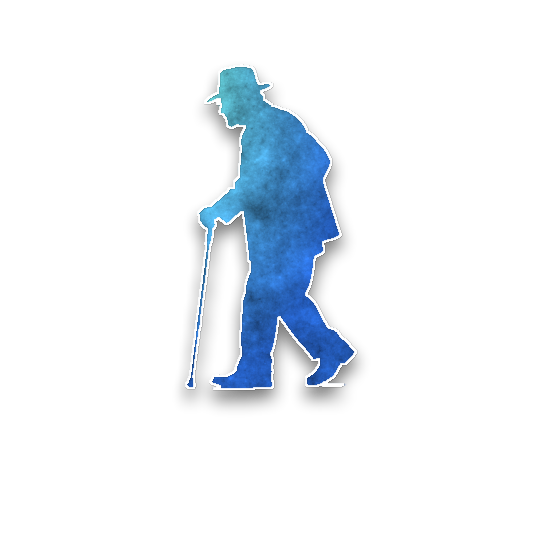
Old Coot
When you die, your Townsfolk neighbors start learning false info.
“You ask me anytime you need anything, young'uns. What would you kids do without me?”The Old Coot's neighbors don't know what to do without him. When the Old Coot dies, mark their Townsfolk neighbors with 'False' reminders; whenever they would learn any information, it must be false.
Examples
During Night 3, Evan the Old Coot is killed by the Imp; his Townsfolk neighbors, Ray the Dreamer and Viola the Empath are marked with 'False' reminders.
Later that night, Ray the Dreamer chooses Trey the Imp; Ray cannot learn the Imp, and learns Mayor and Goblin instead.
Outsider

Stoker
When you die, your alive good neighbors might die at any time (up to twice).
“This train's gonna run as fast as it can, sir! I'm scoopin' as fast as I can, I am! Why's the fire leavin' the furnace?”The Stoker can accidentally blow up their neighbors. If the Stoker is dead, one of their alive good neighbors might die up to twice at any time; if they do, mark them with a 'Dead' reminder until dusk.
Examples
During Night 3, Ava the Stoker is killed. Later that night, one of Ava's alive good neighbors, Drew dies.
During Night 4, another one of Ava's alive good neighbors, Maddison, dies. The Stoker's ability can no longer kill any more players.
Outsider

Tumblebleed
When you die, your closest alive neighbor clockwise becomes a Tumblebleed if good, but does not learn this and thinks they are still their previous character.
“The tumble bumbled along the bramble tamble. The thistly bristles go in a bustling tussle.”The Tumblebleed tumbles into their neighbors and pricks them if dead. When the Tumblebleed dies, if their closest alive clockwise neighbor is good, mark them with a 'Pricked' reminder; they are now a Tumblebleed, but think they are what they used to be and receive arbitrary information or their ability does not work. If your closest alive neighbor is evil, nothing happens.
Examples
On Night 3, Roy the Tumblebleed dies; their closest alive neighbor clockwise, Laurie the Washerwoman, becomes 'Pricked' and is now a Tumblebleed.
On Day 4, Laurie is executed; their closest alive neighbor clockwise, Drew the Imp, does not become 'Pricked'.
Outsider

Contrarian
If someone chooses you during the night, you switch alignments (you don't learn this). At the night before the final day, learn your alignment, even if dead. You are sober and healthy.
“Of course I'm not agreeing with anything you say Jeremy. I haven't heard you say an intelligent thing in your life, that's why.”The Contrarian constantly changes alignment, to the point that they're unsure of it. Each time the Contrarian is chosen with an ability, the Contrarian changes alignment (use the 'Good' and 'Evil' reminder tokens if this is hard to remember). Once per game, the Contrarian may choose to see their alignment; after they do, mark them with the 'Once' reminder. The Contrarian cannot be drunk or poisoned.
Examples
On Night 1, Fran the Chambermaid chooses Trey the Contrarian; Trey becomes evil but does not wake.
On Night 3, Wendy the Poisoner chooses Trey; nothing happens.
On Night 5, the final night, Trey wakes and is shown their alignment, which is evil.
Outsider

Deserter
If the alive evil outnumber the alive good, you become evil, even if dead.
“Which team am I on? The winning team, of course!”The Deserter changes teams if good is numerically losing. If the number of alive evil players outnumber the number of alive good players, the Deserter becomes evil; mark them with the 'Deserted' reminder. This happens even if the Deserter is dead.
Examples
On Night 5, there is now 3 alive evil and 2 alive good; Xander the Deserter is woken and shown the 'you are' and 'evil' tokens and marked with the 'Deserted' reminder token.
Outsider

Pinkerton
A good player registers as evil and as a minion or outsider, even if dead. If you guess (once) who it is, learn 1 of 2 players is the Demon, but guess wrong and get false info.
“Vice may triumph for a time, crime may flaunt its victories in the face of honest toilers, but in the end the law will follow the wrong-doer to a bitter fate, and dishonor and punishment will be the portion of those who sin.”The Pinkerton tries to find who they're supposed to investigate. During setup, mark one player with the 'Framed' token; they always register as evil and as a minion or outsider, even if the Pinkerton is dead. Once per game, the Pinkerton way privately guess who the framed player is. If they are right, they learn two players one of which is the Demon; if they are wrong, they receive false information instead. After they guess, mark them with the 'Guess Used' reminder.
Examples
During setup, Emily the Empath is marked with the 'Framed' reminder; each time they are chosen with an ability, they are shown as evil and as either an outsider or a minion, even if Francis the Pinkerton is dead.
On Day 4, Francis privately guesses that Ted the Spy is Framed; they learn Emily and Roy the Goblin, which is false information. Francis is marked with the 'Guess Used' reminder.
Outsider

One of Lies
True information someone is "mad" is false might become false, even if dead.
“2 plus 2 is 5. Up is down, down is up. You are someone I trust with the truth.”The One of Lies makes false out of true. If any player is "mad" that a piece of true information is false, it might become false, even if the One of Lies is dead.
Examples
On Day 2, Siobhan the Pit Hag is "mad" that Mary the Empath's true 0 is false; later that night, of of Mary's alive neighbors, Wendy the Washerwoman, becomes evil so Mary's information is now false.
On Day 4, Drake the Choirboy is "mad" that the Demon is the Po, not the Imp; later that night, Ron the Demon, who was the Imp, becomes the Po.
Only trigger the One of Lies' ability once or twice per game, unless good is winning quite easily.
Outsider
Night Order
First Night
 Partier
Partier Tourist
Tourist Nun
Nun Incense Burner
Incense Burner Telemarketer
Telemarketer Mistress
Mistress Saloon Gal
Saloon Gal Mason
Mason Godchild
Godchild Shaman
Shaman Brakeman
Brakeman Quartermaster
Quartermaster Surveyor
Surveyor Guild Master
Guild Master Ballerina
Ballerina Explorer
Explorer Theorist
Theorist Maître D'
Maître D' Statistician
Statistician Prospector
Prospector Baker
Baker Banker
Banker Law Dog
Law Dog Falconer
Falconer Captain
Captain Socialite
Socialite Brewer
Brewer Archer
Archer Actor
Actor Dentist
Dentist Faker
Faker Tracker
TrackerOther Nights
 Tourist
Tourist Hippie
Hippie Quack
Quack Nun
Nun Incense Burner
Incense Burner Telemarketer
Telemarketer Annata
Annata Partier
Partier Leper
Leper Tumblebleed
Tumblebleed Old Coot
Old Coot Mistress
Mistress Saloon Gal
Saloon Gal Apothecary
Apothecary Templar
Templar Statistician
Statistician Prospector
Prospector Muckraker
Muckraker Shaman
Shaman Baker
Baker Banker
Banker Clockwork Man
Clockwork Man Poet
Poet Law Dog
Law Dog Mason
Mason Falconer
Falconer Captain
Captain Socialite
Socialite Teamster
Teamster Brewer
Brewer Archer
Archer Medic
Medic Ahab
Ahab Survivalist
Survivalist Actor
Actor Grave Digger
Grave Digger Cowboy
Cowboy Dentist
Dentist Tracker
Tracker Contrarian
Contrarian Coroner
Coroner- this almanac generated using Bloodstar Clocktica
- Enjoying Bloodstar? Buy me a coffee!